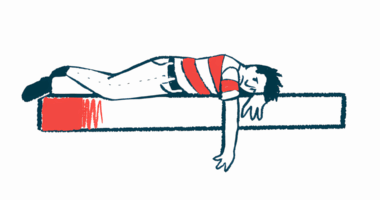My New Diagnosis Tightens the Bond I Have With My Husband

I recently started seeing a psychiatrist again to confirm the state of my mental health. Though I haven’t been experiencing any serious symptoms lately, I thought it might be good to stay on track with my checkups. Thankfully, my new doctor offered me flexible payment terms, which encouraged me even more to stick to the sessions.
As a result, I am now officially diagnosed with attention-deficit/hyperactivity disorder (ADHD) of the inattentive type.
This development, while sudden, does not surprise me too much. Many difficulties I encountered in school, the workplace, and the outside world are consistent with typical ADHD symptoms. I often saw myself as disorganized and scatterbrained. I also jumped constantly between two contrasting energy states: I was either turbo-powered or unmotivated.
Getting this diagnosis is a relief because I can now understand the reason behind my past struggles. For once, I can let go of self-blame and learn to harness my strengths while respecting my limitations.
For a while, I was concerned that disclosing my ADHD diagnosis would cause people to treat me differently. The last thing I want is for someone to baby me simply because I am “sick.” Thankfully, my husband, Jared, reminded me that people are so much more than their diagnoses. By exceeding other people’s expectations of him as a person with hemophilia and seizures, he has proven many times that disabled should not have to mean incapable.
And he is right. A diagnosis is simply a label, a way to explain the symptoms a person experiences. But as I have learned from my involvement in hemophilia and epilepsy circles, the same diagnosis can manifest differently among different people. There is so much diversity in a single type of illness! A diagnosis can describe people, but it does not define who they are.
Jared also mentioned that my psychological conditions have a silver lining. They give me perspective of what it’s like to live with a disability. While his is physical, mine is mental — and both can be debilitating in certain ways.
From an entirely utilitarian perspective, it makes sense for a person with a disability to marry someone without a disability because it appears simple. The person who is not disabled can help the disabled person do the things he or she cannot do. For some people, this works. But for Jared and me, having a shared experience of disability has strengthened our bond so we can support each other in ways we truly need.
For instance, Jared can’t drive due to his seizure disorder, so I happily take the wheel whenever we need to go somewhere. I make up for the things he cannot do due to his physical limitations. Meanwhile, Jared helps me by giving psychological support and the kind of extreme patience only a fellow struggler can give.
For instance, I have a hard time keeping track of things, organizing my desk, or getting started with my day when I’m overwhelmed with the tasks I need to tackle. Given that I also experience bouts of anxiety, I need someone who is patient enough to listen and not judge me when I rant. Jared is my anchor, the one who calms me down when my nerves go haywire, and the steadfast worker who brings my lofty ideas to fruition.
Jared and I complement each other to make up for what we’re missing. That’s how we manage to thrive despite being two imperfect people.
Sometimes we fall short, and sometimes we fear that we have disappointed the other. That’s where communication comes in. We talk about points of improvement and how change can be reasonably achieved — knowing what each of us can (or cannot) do. We both know we can always try to be better, and that’s what matters most.
Note: Hemophilia News Today is strictly a news and information website about the disease. It does not provide medical advice, diagnosis, or treatment. This content is not intended to be a substitute for professional medical advice, diagnosis, or treatment. Always seek the advice of your physician or another qualified health provider with any questions you may have regarding a medical condition. Never disregard professional medical advice or delay in seeking it because of something you have read on this website. The opinions expressed in this column are not those of Hemophilia News Today or its parent company, Bionews, and are intended to spark discussion about issues pertaining to hemophilia.







Leave a comment
Fill in the required fields to post. Your email address will not be published.